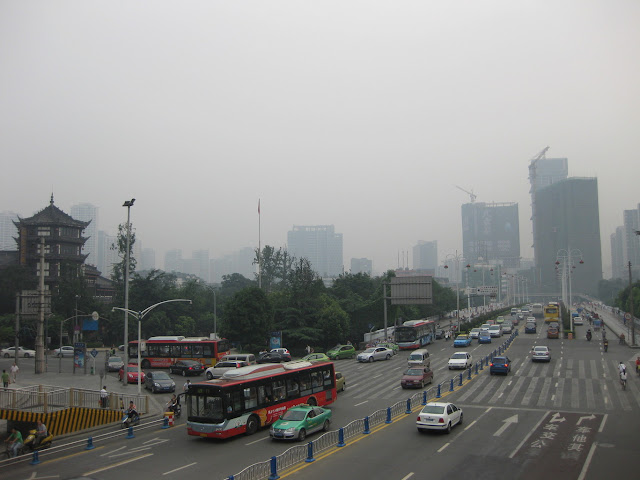While I'm waiting ten years for my photographs to resize, I wanted to share this article I found while I was furiously trying to find everything academic ever written about wildlife conservation in China, ahead of meeting up with an expert at 川大(Sichuan University) next week. (Having no scientific background makes me something of a confidence man when I'm talking to people about my research.)
This article came out in The New Yorker in 2008, written by "Great American Novelist" Jonathan Franzen, no less. It's called "The Way of the Puffin," and it traces a journey Franzen took to China to visit factories and go bird watching. He was inspired by the gift of a luxe golf head cover in the shape of an adorable puffin-"made in China." But hypocrisy nagged at him--that somewhere nature was plowed over to build a factory to make stuffed animals to sell to people who get sentimental over stuffed animals.
At one point he asks his bird-watching companion to take him to a bird market, and the guy very reluctantly agrees. He writes this (forgive the blog-unfriendly length, he's a talented writer, and builds to a point):
There, in a maze of alleys north of the Qinhuai River, we saw freshly caught skylarks beating themselves against the bars of cages. We saw a boy taming a sparrow on a leash by stroking its head. We saw tall cones of bird shit. Least disturbing to me were the cages of budgies and munias that had possibly been bred in captivity. Next-least disturbing were the colorful exotics-fulvettas, leafbirds, yuhinas-that had been extracted from some beleaguered southern forest and spirited to Nanjing. I hated to see them here, but they looked only half real, because I didn't know them in their native habitat. It was like the difference between seeing some outlandish stranger in a porn flick and seeing your best friend: the most upsetting captives were the most familiar-the grosbeaks, the thrushes, the sparrows. I was shocked by how much smaller and altogether more ragged and diminished they looked in cages than they had in the Botanical Garden. It was just as Shrike had told Xiaoxiaoge: what a nature reserve protected was a place. Almost as much as the animal was in the place, the place was in the animal.
The entire article is worth reading. For not being remotely a China expert, Franzen's observations are very thoughtful and unadorned with travel-writing BS. At one point he mentions how Chinese elevators are on a "hair-trigger" which I was reminded of today when I got on the elevator at my apartment building and the guy already on the elevator pressed the door close button before I was all the way on, and it slammed shut on my backpack, trapping me for a tense 3 seconds. The guy looked at me and let out a put-upon sigh, like "you see what I'm working with here people?" Then pushed the door close button again.




